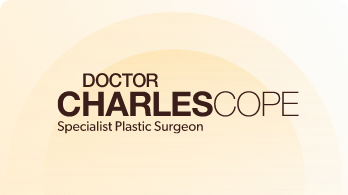Skin rejuvenation through Medical Grade Skin Care
From our late 20’s we begin to notice changes in our skin. Skin cell turn over starts to slow down resulting in the accumulation of dead cells – these dead cells interfere with how light reflects off our skin and can be seen as a dullness.
Life starts to show in your 30’s – you may notice more dryness and irritations that you have before, and pigmentation may also start to appear where you once before had a clear complexion.

By 40, important proteins such as collagen and elastin fibres, responsible for keeping our skin plump and youthful, have started to breakdown faster. True signs of ageing in combination with the cumulative impact of damage caused by free radicals and sun-damage are now highly visible. Repetition of facial expression may start to show as wrinkles and loss of elasticity and strength of supporting ligaments result in sagging and skin laxity.
Advanced anti-aging treatments in combination with Medical grade skincare slow down the aging process, and in some cases can even reverse signs of skin damage (note results vary from person to person).
How to help achieve better skin
Skin health is a reflection of internal health especially with skin conditions. Consuming nutrient rich foods will not only improve your skin but also helps prevent premature aging, and improve skin conditions such as acne, excessive redness, psoriasis and dermatitis. The following nutrition & lifestyle changes have been proven to be effective in producing healthier skin.
Guide to good skin health Supporting your skin as it ages – any time is a good time to start
Eating a wholefood diet that comprises a variety of colourful vegetables, fruits, good fats (avocado, salmon, nuts and olive oil) lean protein and wholegrains is one of the best steps to glowing skin.
Lifestyle factors that increase skin health include
- Drinking 1.5 to 2 litres of water a day
- Exercising at least 2- 3 times a week
- Reduce alcohol consumption
- Cease smoking
- Reduce stress
- Ge sufficient sleep (for most people 7-8 hours a night)
Be Sun Smart
A broad spectrum sunscreen is best, protecting from both UVA and UVB sources of light, with an SPF of at least 30. Sunscreens containing titanium dioxide and zinc oxide tend to be best tolerated by most people, and they provide a physical block against UV sources. The use of sunscreens must always be supported with avoiding sun exposure and wearing sun protective clothing, sunglasses and hats.
Medical grade skin care aims to reverse, protect, and minimise further skin damage, and is only available under medical supervision.
Use Medical Grade Skin Care
Medical grade skin care is less expensive than high end over-the-counter skin care products and are far more effective – there are restrictions on the concentration and pH of products sold over the counter compared to those sold under medical supervision.
“What you put on your skin matters – Clean science”.
With clean active ingredients, medical grade skincare can improve skin health in all skin types. Free from harsh ingredients such as parabens, mineral oil, petrolatum, PEGs, sodium lauryl sulfate, artificial dyes and fragrances, with all skin care ranges being cruelty free.
Skin care regimes involving active ingredients often take 3-6 months to achieve results*. It is advised to have follow-up skin consultation at 2 weeks, 3 months and again at 6 months to ensure the recommended regime is still correct to support your skin needs. The treatment needs to be continued for any improvement to be maintained and prevent further damage by changing lifestyle factors, especially sun avoidance.
*note results vary from person to person
Non-Negotiables – A new standard in clinical skincare
Niacinamide (vitamin B3) – take 500mg twice a day orally
Niacinamide has the ability to strengthen and hydrate the skin by reinforcing the skins barrier and assist in the reduction of trans epidermal water loss. Niacinamide may also improve the appearance of pigmentation by acting as a melanin transfer inhibitor.
Despite the increasing use of sunscreens and other sun avoidance measures the incidence of skin cancer continues to rise in Australia, and there is a large amount of research being performed on preventing skin cancers (suncreens seem to be more effective at preventing sunburn than at preventing skin cancers).
The mechanism of skin cancer formation is complex but immunosuppression caused by ultraviolet (UV) radiation plays an important role in skin cancer formation. Recent evidence has found that topical Niacinamide reduces the immunosuppression caused by UV radiation, and oral Niacinamide (500mg bd) reduces the incidence of non-melanoma skin cancers. (reference Damian D. American Society of Clinical Oncology. 2015)
Topical Antioxidants
These antioxidants help to protect against the ultraviolet rays of the sun by fighting oxygen free radicals in the skin (preventing collagen breakdown, aging, and helping to protect against the development of skin cancer). They also protect against damage from free radical formation from environmental pollutants, smoking, and alcohol.
Vitamin C
Vitamin C has strong anti-oxidant properties promoting healthy skin, increases the skins ability to resist sun damage and reduces wrinkles and pigmentation spots.
Alpha hydroxy acids (AHAs)
Alpha hydroxyl acids (AHAs) enhance exfoliation, increasing cell turnover, smoothing the skin and helping to reduce pigmentation spots. AHA’s gently resurfaces the skin layers to refresh and revitalize. They also aid in the penetration of other active skin care ingredients.
Note that both Retinol (tretinoin) and alpha hydroxy acids increase sun sensitivity, and therefore sun avoidance and the use of a broad-spectrum sunscreen is essential.
Vitamin A
Retinol is a compound related to vitamin A, which reverses some of the effects of aging, and has been safely used now for over 40 years. It significantly increases the amount of collagen in the skin, and improves fine wrinkles and helps to lighten brown spots.
Retinol is usually used in combination with alpha hydroxy acids, as the combination is usually well tolerated and may have an additional benefit. It should also be combined with a lightening agent for reduction of skin pigmentation (brown spots) if this is your main concern. If therapy is stopped then the skin returns to pretreatment condition within 2 – 3 months*, and therefore continued use is required to maintain the improvement. For those who are sensitive to taking Retinol, an alpha hydroxy acid may be substituted.
“ALL IS BRIGHT” – Tyrosinase Inhibitors
Skin pigmentation is caused by melanin. Sun exposure stimulates the production of melanin by the skin through a very complex process influenced by internal and external factors as a protective mechanism against UV light exposure, causing both a darkening in colour and the appearance of irregular darker “age” spots. There are a number of treatments that decrease the production of melanin by stopping the enzyme tyrosinase, which produces melanin.
Powerful yet safe brightening serums deliver multiple pathways targeting existing pigmentation as well as preventing new problem areas from appearing. An even toned and brighter complexion is achieved with the introduction of a tryiosinase inhibitor.
Sunscreens “be PROTECTED”
Make sure that your sunscreen protects against UVA, which causes many of the changes of photoaging and skin cancer, as well as UVB, which causes sunburn. A sunscreen should contain protection against both UVA and UVB, and be a SPF (sun protection factor) of at least 30 or greater. The SPF factor is only calculated on the effectiveness of the sunscreen against UVB.
New sunscreens containing micronised zinc oxide (which is the broadest spectrum sunscreen available, and protects against both UVA and UVB) are colourless, rather than the old fashioned opaque versions, so no ‘ghosting’ effect is seen when wearing the sunscreen. As long as the sunscreen contains 5-7% zinc oxide it will give you good protection.
Mineral Makeup
High-grade mineral makeup helps protect the skin from environmental aggressors and sun damage.
With ingredients including antioxidants and natural extracts it improves skin quality and overall skin appearance, while providing addition benefit to skin conditions such as acne, dermatitis, psoriasis and excessive redness. The non-comedogenic makeup conforms to the most current technology available that ensure broad spectrum sun protection. Good mineral makeup products are safety tested, allergy tested, clinically tested and dermatologist tested to ensure avoidance of any ingredients that may be skin sensitizers.
Information on the skin care products
Be careful in the selection of skin care products. Many of the creams or gels marketed as containing many of these substances that are available over the counter have only very small amounts of the active ingredient, and may not have the beneficial effects produced by these substances in a more concentrated form. It may be possible to buy a cream or gel containing a combination of these compounds, but this should not be at the expense of having the compounds being too weak to be effective.
We advise a follow up skin consultation at 2 weeks, 3 months and 6 months after staring your new skin care regime.
If you have any questions regarding your skin and treatments available at Infinity, please do not hesitate to call us on 9307 2833, txt 0437 234 651, or email info@infinityskin.com.au
*Note results may vary from person to person



